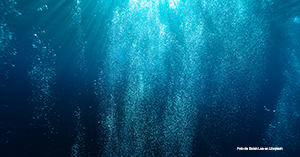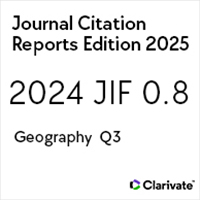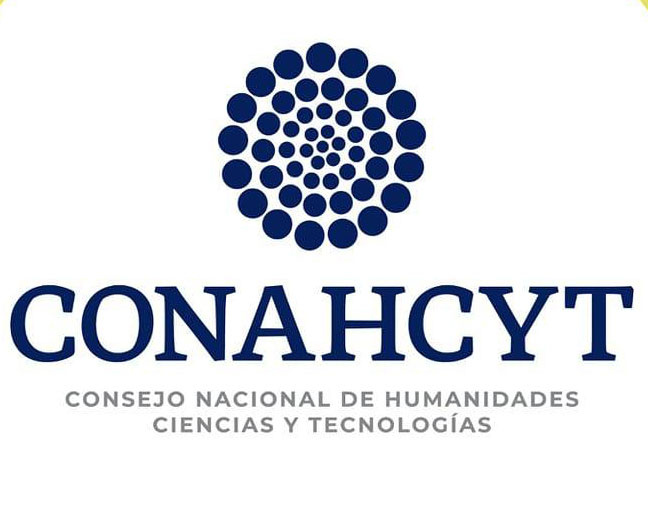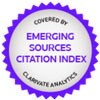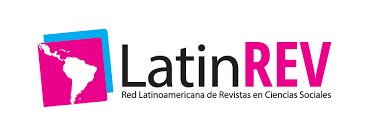Capital hits bottom: deep-sea mining representations as a resource frontier
El capital toca fondo: representaciones de la minería en aguas profundas como frontera de recursos
https://doi.org/10.21670/ref.2509167
Keywords:
deep-sea mining, resource frontier, representations, capitalAbstract
This article aims to analyze the central discourses present in narratives about deep-sea mining, to understand what representations are being constituted of the ocean floor and its minerals. With a methodology based on qualitative content analysis applied to grey literature, including media and social networks published in the period from June 2021 to June 2024, the results show that the themes of blue economy, governance and biodiversity are connected to resource frontier dynamics such as the need to exploit other sources, govern resources and present the ocean floor as a zone of opportunity. Although it is recognized that some issues may be missing, the sample illustrates the characteristics of the most dominant and recurrent positions on deep-sea mining. These findings allow to nurture the conceptual discussion and open questions about the creation of new extraction spaces at a global level.Resumen
Este artículo tiene como objetivo analizar los discursos centrales presentes en narrativas sobre la minería en aguas profundas, para comprender qué representaciones se están constituyendo del fondo del océano y sus minerales. Con una metodología basada en el análisis cualitativo de contenido aplicado a literatura gris, incluidos medios de comunicación y redes sociales publicados en el periodo de junio de 2021 a junio de 2024, los resultados muestran que los temas sobre economía azul, gobernanza y biodiversidad se conectan con dinámicas de la frontera de recursos como la necesidad de explotar otras fuentes, gobernar los recursos y presentar al fondo del océano como una zona de oportunidad. Se reconoce que pueden faltar algunas temáticas, la muestra ilustra las características de las posiciones más dominantes y recurrentes sobre minería en aguas profundas. Estos hallazgos permiten nutrir la discusión conceptual y abrir interrogantes sobre la creación de nuevos espacios de extracción a nivel global.References
Agusdinata, D. B. & Liu, W. (2023). Global sustainability of electric vehicles minerals: a critical review of news media. The Extractive Industries and Society, 13, Artículo 101231. https://doi.org/10.1016/j.exis.2023.101231 DOI: https://doi.org/10.1016/j.exis.2023.101231
Bakker, K. & Bridge, G. (2006). Material worlds? Resource geographies and the ‘matter of nature. Progress in Human Geography, 30(1), 5-27. https://doi.org/10.1191/0309132506ph588oa DOI: https://doi.org/10.1191/0309132506ph588oa
Banoub, D., Bridge, G., Bustos, B., Ertor, I., González-Hidalgo, M. & De los Reyes, J. A. (2021). Industrial dynamics on the commodity frontier: managing time, space and form in mining, tree plantations and intensive aquaculture. Environment and Planning E: Nature and Space, 4(4), 1533-1559. https://doi.org/10.1177/2514848620963362 DOI: https://doi.org/10.1177/2514848620963362
Barbier, E. B. (2007). Frontiers and sustainable economic development. Environmental and Resource Economics, 37, 271-295. https://doi.org/10.1007/s10640-007-9120-9 DOI: https://doi.org/10.1007/s10640-007-9120-9
Barlow, A. (2023). The temporalities of extractive frontiers: the promises of booms and going bust in the Tanzanian gas sector. Geoforum, 138, Artículo 103664. https://doi.org/10.1016/j.geoforum.2022.11.006 DOI: https://doi.org/10.1016/j.geoforum.2022.11.006
Barney, K. (2009). Laos and the making of a ‘relational’ resource frontier. The Geographical Journal, 175(2), 146-159. https://doi.org/10.1111/j.1475-4959.2009.00323.x DOI: https://doi.org/10.1111/j.1475-4959.2009.00323.x
Beban, A. & Banks, G. (2023). Institutions, governance and extractives: where politics and ecologies collide. The Extractive Industries and Society, 15, Artículo 101298. https://doi.org/10.1016/j.exis.2023.101298 DOI: https://doi.org/10.1016/j.exis.2023.101298
Bennett, J. (2022). Materia vibrante. Una ecología política de las cosas. Caja Negra Editora.
Bennett, N. J., Blythe, J., White, C. S. & Campero, C. (2021). Blue growth and blue justice: ten risks and solutions for the ocean economy. Marine Policy, 125, Artículo 104387. https://doi.org/10.1016/j.marpol.2020.104387 DOI: https://doi.org/10.1016/j.marpol.2020.104387
Carver, R. (2019). Resource sovereignty and accumulation in the blue economy: the case of seabed mining in Namibia. Journal of Political Ecology, 26(1), 381-402. https://doi.org/10.2458/v26i1.23025 DOI: https://doi.org/10.2458/v26i1.23025
Chagani, F. (2014). Critical political ecology and the seductions of posthumanism. Journal of Political Ecology, 21(1), 424-436. https://doi.org/10.2458/v21i1.21144 DOI: https://doi.org/10.2458/v21i1.21144
Chen, W., Peters, K., Amon, D., Baker, M., Childs, J., Conde, M., Gollner, S., Magnussen, K., Mondre, A., Navrud, S., Singh, P. A., Steinberg, P. & Willaert, K. (2023). Assembling the seabed: Pan-European and interdisciplinary advances in understanding seabed mining. En S. Partelow, M. Hadjimichael & A.-K. Hornidge (Eds.), Ocean governance. Knowledge systems, policy foundations and thematic analyses (pp. 275-294, MARE publication series v. 25). Springer. https://doi.org/10.1007/978-3-031-20740-2_12 DOI: https://doi.org/10.1007/978-3-031-20740-2_12
Childs, J. (2019). Greening the blue? Corporate strategies for legitimising deep sea mining. Political Geography, 74, Artículo 102060. https://doi.org/10.1016/j.polgeo.2019.102060 DOI: https://doi.org/10.1016/j.polgeo.2019.102060
Childs, J. (2020). Extraction in four dimensions: time, space and the emerging geo(-)politics of deep-sea mining. Geopolitics, 25(1), 189-213. https://doi.org/10.1080/14650045.2018.1465041 DOI: https://doi.org/10.1080/14650045.2018.1465041
Childs, J. (2022). Geographies of deep-sea mining: a critical review. The Extractive Industries and Society, 9, Artículo 101044. https://doi.org/10.1016/j.exis.2022.101044 DOI: https://doi.org/10.1016/j.exis.2022.101044
Cons, J. & Eilenberg, M. (Eds.). (2019). Frontier assemblages. The emergent politics of resource frontiers in Asia. Wiley. DOI: https://doi.org/10.1002/9781119412090
Deberdt, R. & James, C. B. G. (2024). Self-governance at depth: the international seabed authority and verification culture of the deep-sea mining industry. Resources Policy, 89, Artículo 104577. https://doi.org/10.1016/j.resourpol.2023.104577 DOI: https://doi.org/10.1016/j.resourpol.2023.104577
DeLoughrey, E. (2017). Submarine futures of the Anthropocene. Comparative Literature, 69(1), 32-44. https://doi.org/10.1215/00104124-3794589 DOI: https://doi.org/10.1215/00104124-3794589
Demiris, G., Oliver, D. P. & Washington, K. (2020). Keystones in behavioral intervention research in hospice and palliative care (RP502). Journal of Pain and Symptom Management, 60(1), 229-230. https://doi.org/10.1016/j.jpainsymman.2020.04.094 DOI: https://doi.org/10.1016/j.jpainsymman.2020.04.094
Escobar, A. (2017). Sustaining the pluriverse: the political ontology of territorial struggles in Latin America. En M. Brightman & J. Lewis (Eds.), The anthropology of sustainability. Beyond development and progress (pp. 237-256). Palgrave Macmillan. https://doi.org/10.1057/978-1-137-56636-2_14 DOI: https://doi.org/10.1057/978-1-137-56636-2_14
Fache, E., Le Meur, P.-Y. & Rodary, E. (2021). Introduction: The new scramble for the Pacific: a frontier approach. Pacific Affairs, 94(1), 57-76. https://doi.org/10.5509/202194157 DOI: https://doi.org/10.5509/202194157
Filer, C., Gabriel, J. & Allen, M. G. (2021). Discombobulated actor-networks in a maritime resource frontier. Pacific Affairs, 94(1), 97-122. https://doi.org/10.5509/202194197 DOI: https://doi.org/10.5509/202194197
Frederiksen, T. & Himley, M. (2020). Tactics of dispossession: access, power, and subjectivity at the extractive frontier. Transactions of the Institute of British Geographers, 45(1), 50-64. https://doi.org/10.1111/tran.12329 DOI: https://doi.org/10.1111/tran.12329
Gentilucci, M. (2022). ‘On board’ deep-sea mining. An ocean-based perspective [Dossier]. Archivio Antropologico Mediterraneo, 25(24(2)). https://doi.org/10.4000/aam.6368 DOI: https://doi.org/10.4000/aam.6368
Hallgren, A. & Hansson, A. (2021). Conflicting narratives of deep-sea mining. Sustainability, 13(9), Artículo 5261. https://doi.org/10.3390/su13095261 DOI: https://doi.org/10.3390/su13095261
Hannigan, J. (2016). The geopolitics of deep oceans. Polity Press.
Hayter, R., Barnes, T. J. & Bradshaw, M. J. (2003). Relocating resource peripheries to the core of economic geography’s theorizing: rationale and agenda. Area, 35(1), 15-23. https://doi.org/10.1111/1475-4762.00106 DOI: https://doi.org/10.1111/1475-4762.00106
Hine, A., Brinkhoff, T., Bolta, A. P., Peters, K., Sammler, K. G. & Tietje, K. (2024). Sedimentary relations: cultures of access and the matter of shallow seabed coring. Cultural Geographies, 32(2), 295-304. https://doi.org/10.1177/14744740241293105 DOI: https://doi.org/10.1177/14744740241293105
Hunt, K. (2024, 5 de abril). Expedición en aguas profundas captura imágenes impresionantes de criaturas marinas en la zona minera del Pacífico. CNN en español. https://cnnespanol.cnn.com/2024/04/05/expedicion-aguas-profundas-criaturas-marinas-llamado-tierra-trax/
Hyman, J., Stewart, R. A., Sahin, O., Clarke, M. & Clark, M. R. (2022). Visioning a framework for effective environmental management of deep-sea polymetallic nodule mining: drivers, barriers, and enablers. Journal of Cleaner Production, 337, Artículo 130487. https://doi.org/10.1016/j.jclepro.2022.130487 DOI: https://doi.org/10.1016/j.jclepro.2022.130487
International Seabed Authority (isa). (2023). DeepData. https://data.isa.org.jm/
Irarrázaval, F. & Bustos-Gallardo, B. (2019). Global salmon networks: unpacking ecological contradictions at the production stage. Economic Geography, 95(2), 159-178. https://doi.org/10.1080/00130095.2018.1506700 DOI: https://doi.org/10.1080/00130095.2018.1506700
Kemp, D. & Owen, J. R. (2024). Researching “resource frontiers” is vital for understanding the human consequences of scaling up renewable energy technologies. One Earth, 7(2), 167-170. https://doi.org/10.1016/j.oneear.2023.12.017 DOI: https://doi.org/10.1016/j.oneear.2023.12.017
Koschinsky, A., Heinrich, L., Boehnke, K., Cohrs, J. C., Markus, T., Shani, M., Singh, P., Smith Stegen, K. & Werner, W. (2018). Deep-sea mining: interdisciplinary research on potential environmental, legal, economic, and societal implications. Integrated Environmental Assessment and Management, 14(6), 672-691. https://doi.org/10.1002/ieam.4071 DOI: https://doi.org/10.1002/ieam.4071
Kröger, M. & Nygren, A. (2020). Shifting frontier dynamics in Latin America. Journal of Agrarian Change, 20(3), 364-386. https://doi.org/10.1111/joac.12354 DOI: https://doi.org/10.1111/joac.12354
Kung, A., Svobodova, K., Lèbre, E., Valenta, R., Kemp, D. & Owen, J. R. (2021). Governing deep sea mining in the face of uncertainty. Journal of Environmental Management, 279, Artículo 111593. https://doi.org/10.1016/j.jenvman.2020.111593 DOI: https://doi.org/10.1016/j.jenvman.2020.111593
Le Billon, P. (2021). Climate extractivism: avoiding the pitfalls of extraction-based decarbonization (Poplar and Ivy). Shackleton Research Trust. https://www.researchgate.net/publication/359927884_Climate_Extractivism_Avoiding_The_Pitfalls_Of_Extraction-Based_Decarbonization DOI: https://doi.org/10.54823/xe60dgxx
Lehman, J. S. (2013). Relating to the sea: enlivening the ocean as an actor in Eastern Sri Lanka. Environment and Planning D: Society and Space, 31(3), 485-501. https://doi.org/10.1068/d24010 DOI: https://doi.org/10.1068/d24010
Levi, S. & Peters, K. (2024). Concerning emotions: feminist contributions to reflexive marine governance. Journal of Environmental Policy & Planning, 27(1), 66-78. https://doi.org/10.1080/1523908X.2024.2395862 DOI: https://doi.org/10.1080/1523908X.2024.2395862
Li, F. (2015). Unearthing conflict. Corporate mining, activism, and expertise in Peru. Duke University Press. https://doi.org/10.1215/9780822375869 DOI: https://doi.org/10.1515/9780822375869
Miller, K. A., Brigden, K., Santillo, D., Currie, D., Johnston, P. & Thompson, K. F. (2021). Challenging the need for deep seabed mining from the perspective of metal demand, biodiversity, ecosystems services, and benefit sharing. Frontiers in Marine Science, 8, Artículo 706161. https://doi.org/10.3389/fmars.2021.706161 DOI: https://doi.org/10.3389/fmars.2021.706161
Moore, J. W. (2015). Capitalism in the web of life. Ecology and the accumulation of capital. Verso Books.
Muñoz Sueiro, L. (2021, 15 de marzo). Minería submarina o cuando el capitalismo toca fondo. CTXT, (270). https://ctxt.es/es/20210301/Politica/35093/Lucia-Mu%C3%B1oz-Sueiro-oceano-cambio-climatico-mineria-mar-capitalismo.htm
Novaglio, C., Bax, N., Boschetti, F., Emad, G. R., Frusher, S., Fullbrook, L., Hemer, M., Jennings, S., Van Putten, I., Robinson, L. M., Spain, E., Vince, J., Voyer, M., Wood, G. & Fulton, E. A. (2022). Deep aspirations: towards a sustainable offshore blue economy. Reviews in Fish Biology and Fisheries, 32, 209-230. https://doi.org/10.1007/s11160-020-09628-6 DOI: https://doi.org/10.1007/s11160-020-09628-6
Peters, K. & Steinberg, P. (2019). The ocean in excess: towards a more-than-wet ontology. Dialogues in Human Geography, 9(3), 293-307. https://doi.org/10.1177/2043820619872886 DOI: https://doi.org/10.1177/2043820619872886
Pierce, J., Martin, D. G. & Murphy, J. T. (2011). Relational place-making: the networked politics of place. Transactions of the Institute of British Geographers, 36(1), 54-70. https://doi.org/10.1111/j.1475-5661.2010.00411.x DOI: https://doi.org/10.1111/j.1475-5661.2010.00411.x
Povinelli, E. A. (2016). Geontologies. A requiem to late liberalism. Duke University Press. DOI: https://doi.org/10.1515/9780822373810
Rehner, J., Murray, W. E., Rodriguez, S. & Overton, J. (2020). Boom city! Regional resource peripheries and urban economic development in Chile. Area Development and Policy, 5(3), 305-323. https://doi.org/10.1080/23792949.2019.1680298 DOI: https://doi.org/10.1080/23792949.2019.1680298
Rehner, J. & Rodríguez, S. (2018, junio). La máquina de crecimiento en una ciudad minera y el papel del espacio público: el proyecto Parque Kaukari, Copiapó. Revista de Urbanismo, (38), 1-21. https://doi.org/10.5354/0717-5051.2018.50434 DOI: https://doi.org/10.5354/0717-5051.2018.50434
Rehner, J. & Rodríguez, S. (2021). Cities built on copper–The impact of mining exports, wages and financial liquidity on urban economies in Chile. Resources Policy, 70, Artículo 101190. https://doi.org/10.1016/j.resourpol.2018.05.001 DOI: https://doi.org/10.1016/j.resourpol.2018.05.001
Rodríguez Leiva, S. (2024). Discutiendo narrativas de sustentabilidad en la literatura sobre minería en aguas profundas y su configuración como frontera de recursos. Finisterra, 59(126), Artículo e34104. https://doi.org/10.18055/Finis34104
Rozwadowski, H. M. (con Earle, S. A.). (2005). Fathoming the ocean. The discovery and exploration of the deep sea. Harvard University Press. DOI: https://doi.org/10.4159/9780674042940
Sammler, K. G. & House-Peters, L. (2023). Unblackboxing mediation in the digital mine. Geoforum, 141, Artículo 103745. https://doi.org/10.1016/j.geoforum.2023.103745 DOI: https://doi.org/10.1016/j.geoforum.2023.103745
Satizábal, P., Dressler, W. H., Fabinyi, M. & Pido, M. D. (2020). Blue economy discourses and practices: reconfiguring ocean spaces in the Philippines. Maritime Studies, 19, 207-221. https://doi.org/10.1007/s40152-020-00168-0 DOI: https://doi.org/10.1007/s40152-020-00168-0
Serje de la Ossa, M. (2017). Fronteras y periferias en la historia del capitalismo: el caso de América Latina. Revista de Geografía Norte Grande, (66), 33-48. https://doi.org/10.4067/S0718-34022017000100003 DOI: https://doi.org/10.4067/S0718-34022017000100003
Silva, L. & Sareen, S. (2023). The calm before the storm? The making of a lithium frontier in transitioning Portugal. The Extractive Industries and Society, 15, Artículo 101308. https://doi.org/10.1016/j.exis.2023.101308 DOI: https://doi.org/10.1016/j.exis.2023.101308
Silver, J. J., Gray, N. J., Campbell, L. M., Fairbanks, L. W. & Gruby, R. L. (2015). Blue economy and competing discourses in international oceans governance. The Journal of Environment & Development, 24(2), 135-160. https://doi.org/10.1177/1070496515580797 DOI: https://doi.org/10.1177/1070496515580797
Srinivasan, K. & Kasturirangan, R. (2016). Political ecology, development, and human exceptionalism. Geoforum, 75, 125-128. https://doi.org/10.1016/j.geoforum.2016.07.011 DOI: https://doi.org/10.1016/j.geoforum.2016.07.011
Steinberg, P. E. (2001). The social construction of the ocean (Cambridge Studies in International Relations, 78). Cambridge University Press.
Steinberg, P. E. (2013). Of other seas: metaphors and materialities in maritime regions. Atlantic Studies, 10(2), 156-169. https://doi.org/10.1080/14788810.2013.785192 DOI: https://doi.org/10.1080/14788810.2013.785192
Steinberg, P. & Peters, K. (2015). Wet ontologies, fluid spaces: giving depth to volume through oceanic thinking. Environment and Planning D: Society and Space, 33(2), 247-264. https://doi.org/10.1068/d14148p DOI: https://doi.org/10.1068/d14148p
Tsing, A. L. (2003). Natural resources and capitalist frontiers. Economic and Political Weekly, 38(48), 5100-5106. https://www.jstor.org/stable/4414348
Van Putten, E. I., Aswani, S., Boonstra, W. J., De la Cruz-Modino, R., Das, J., Glaser, M., Heck, N., Narayan, S., Paytan, A., Selim, S. & Vave, R. (2023). History matters: societal acceptance of deep-sea mining and incipient conflicts in Papua New Guinea. Maritime Studies, 22, Artículo 32. https://doi.org/10.1007/s40152-023-00318-0 DOI: https://doi.org/10.1007/s40152-023-00318-0
Weller, S. A. (2019). Just transition? Strategic framing and the challenges facing coal dependent communities. Environment and Planning C: Politics and Space, 37(2), 298-316. https://doi.org/10.1177/2399654418784304 DOI: https://doi.org/10.1177/2399654418784304
Whittaker, G. R., Peters, K. & Van Opzeeland, I. (2024). Oceans sing, are you listening? Sounding out potentials for artistic audio engagements with science through the Polar Sounds project. Marine Policy, 169, Artículo 106347. https://doi.org/10.1016/j.marpol.2024.106347 DOI: https://doi.org/10.1016/j.marpol.2024.106347
Wong, G. Y., Holm, M., Pietarinen, N., Ville, A. & Brockhaus, M. (2022). The making of resource frontier spaces in the Congo Basin and Southeast Asia: a critical analysis of narratives, actors, and drivers in the scientific literature. World Development Perspectives, 27, Artículo 100451. https://doi.org/10.1016/j.wdp.2022.100451 DOI: https://doi.org/10.1016/j.wdp.2022.100451
Zaar, M.-H. (2024). La geopolítica del carbono cero y el papel de los minerales críticos en la transición energética. Ar@cne. Revista Electrónica de Recursos en Internet sobre Geografía y Ciencias Sociales, 28(290). https://doi.org/10.1344/ara2024.290.46680 DOI: https://doi.org/10.1344/ara2024.290.46680
Zalik, A. (2018). Mining the seabed, enclosing the Area: ocean grabbing, proprietary knowledge and the geopolitics of the extractive frontier beyond national jurisdiction. International Social Science Journal, 68(229-230), 343-359. https://doi.org/10.1111/issj.12159 DOI: https://doi.org/10.1111/issj.12159

